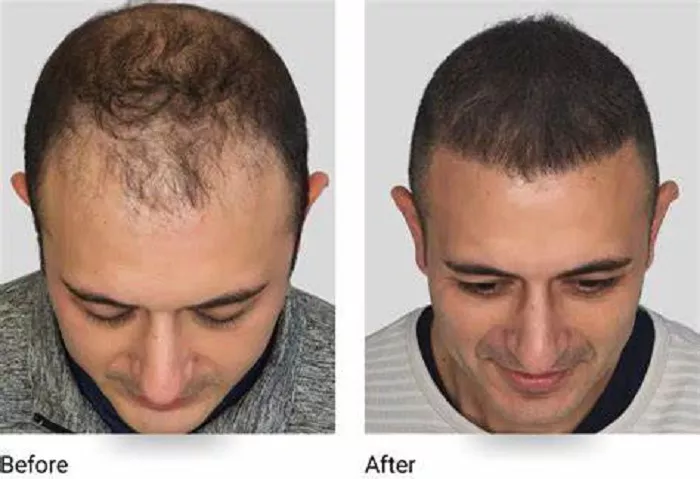Preparing for a hair transplant involves more than just scheduling the procedure; it requires thoughtful dietary choices to ensure optimal healing and hair growth. A nutrient-rich diet can enhance the success of the transplant and promote overall well-being.
Why Diet Matters Before Hair Transplant Surgery
Your body’s ability to heal and support new hair growth is significantly influenced by your nutritional intake. Consuming the right foods can:
- Boost immune function
- Enhance blood circulation
- Reduce inflammation
- Strengthen hair follicles
- Improve skin and scalp health
Conversely, poor dietary choices can impede healing and compromise the transplant’s effectiveness.
Essential Nutrients to Include in Your Pre-Surgery Diet
Protein: The Building Block of Hair
Hair is primarily composed of keratin, a protein. Adequate protein intake supports tissue repair and hair follicle strength.
Sources:
- Lean meats (chicken, turkey)
- Fish (salmon, mackerel)
- Eggs
- Legumes (lentils, chickpeas)
- Tofu and tempeh
Iron: Enhancing Oxygen Delivery
Iron facilitates oxygen transport to hair follicles, promoting growth and repair.
Sources:
- Red meat
- Spinach
- Lentils
- Fortified cereals
- Pumpkin seeds
Vitamin C: Boosting Collagen Production
Vitamin C aids in collagen synthesis, strengthening hair structure and enhancing iron absorption.
Sources:
- Citrus fruits (oranges, lemons)
- Strawberries
- Bell peppers
- Broccoli
- Kiwi
Omega-3 Fatty Acids: Reducing Inflammation
Omega-3s have anti-inflammatory properties that support scalp health and hair growth.
Sources:
- Fatty fish (salmon, sardines)
- Flaxseeds
- Chia seeds
- Walnuts
Zinc: Supporting Hair Tissue Growth
Zinc plays a vital role in hair tissue growth and repair.
Sources:
- Oysters
- Beef
- Pumpkin seeds
- Lentils
- Cashews
Biotin: Promoting Hair Strength
Biotin, a B-vitamin, is essential for hair strength and growth.
Sources:
- Egg yolks
- Almonds
- Sweet potatoes
- Spinach
- Broccoli
Vitamin D: Stimulating Hair Follicles
Vitamin D is crucial for hair follicle cycling and preventing hair loss.
Sources:
- Fatty fish
- Cod liver oil
- Fortified dairy products
- Egg yolks
- Sun exposure
Vitamin E: Enhancing Scalp Circulation
Vitamin E improves blood circulation to the scalp, supporting healthy hair growth.
Sources:
- Sunflower seeds
- Almonds
- Spinach
- Avocados
- Olive oil
Foods and Substances to Avoid Before Surgery
Alcohol
Alcohol can thin the blood and impair healing. It’s advisable to abstain from alcohol for at least 48 hours before surgery.
Caffeine
Excessive caffeine intake may increase blood pressure and heart rate, potentially affecting the procedure. Limit consumption of coffee, tea, and energy drinks.
Spicy Foods
Spicy foods can cause inflammation and increase bleeding risk. Avoid dishes with high levels of chili, pepper, or other spices.
Sugary Foods and Beverages
High sugar intake can lead to systemic inflammation, hindering the healing process. Limit consumption of sweets, sodas, and processed snacks.
Processed and Junk Foods
These foods often lack essential nutrients and can interfere with recovery. Opt for whole, unprocessed foods instead.
High-Sodium Foods
Excessive salt can lead to water retention and swelling. Reduce intake of salty snacks, canned soups, and processed meats.
Certain Supplements and Medications
Some supplements and medications can increase bleeding risk. Consult your doctor about any supplements or medications you’re taking, especially:
- Aspirin
- Ibuprofen
- Vitamin E
- Fish oil
- Ginkgo biloba
Hydration: A Key Component
Staying well-hydrated is essential for optimal healing and hair growth. Aim to drink at least 8 glasses of water daily in the days leading up to your surgery. Proper hydration supports nutrient transport and overall bodily functions.
Sample Pre-Surgery Meal Plan
Breakfast:
- Scrambled eggs with spinach
- Whole-grain toast
- Orange slices
- Green tea
Lunch:
- Grilled salmon salad with mixed greens, cherry tomatoes, and olive oil dressing
- Quinoa
- Apple
Snack:
- Greek yogurt with chia seeds
- Handful of almonds
Dinner:
- Grilled chicken breast
- Steamed broccoli and carrots
- Brown rice
- Herbal tea
Final Thoughts
A well-balanced diet rich in essential nutrients plays a pivotal role in the success of your hair transplant surgery. By making informed dietary choices, you can enhance healing, support hair growth, and achieve the best possible results. Always consult with your healthcare provider or a registered dietitian for personalized advice tailored to your specific needs.
Related topics:


